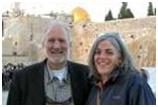
The trial of Alan Gross, the US subcontractor arrested in Cuba, concluded with its verdict this past March 4th. In determining his sentence, does the Cuban court base it on justice and reason, or on political differences which define the relationship between Cuba and the United States?
Which arguments does the Cuban justice system use to adjudicate the actions carried out by Gross on the island, the same one described in the penal precept which was the same judicial process applied against the 75 dissidents during the Black Spring of Cuba?
In April of 2003, 12 provincial courts dictated 28 sentences, dishing out long periods of captivity for the crime of “acts against the independence of the Cuban state or the integrity of its territory”, for at least 43 of the 75 dissidents. Supposedly, with their opposition and political activism, they were encouraging an armed humanitarian intervention against the island.
In the video which is circulating on the web, a member of Cuban State Security accuses the United States of financing the introduction of satellite communications in Cuba to create points of access to the internet which would be beyond the control of authorities. Gross is accused of distributing satellite connection equipment.
The Cuban government feels threatened after knowing that social networks like Facebook and Twitter were used to organize popular protests which led to the end of the rule of dictatorial leaders in Egypt and Tunisia, and which continue to threaten the rulers of Libya and Bahrain.
The National Assembly criminalized the individual relations of its citizens with the United States, using Law No.88/1996 for “Reaffirming Cuban Dignity and Sovereignty” and Law No. 88/99 of “Protecting the Independence and Economy of Cuba”. It means that the fact that Alan Gross is a U.S. citizen worsens his situation before the Cuban authorities.
Both norms were approved after the United States approved the Helms-Burton law in 1996. The North American government reinforced the unilateral embargo towards the island after the Cuban Air Force shot-down two airplanes being flown over international waters by exiles, known as the “Brothers to the Rescue”. Four Cuban-Americans died in this incident.
“The law of the strongest,” is what defines the dispute between Cuba and the United States. A marathon of obstacles and resistance, of action and reaction, which has lasted more than half a century. For the sake of this, citizens of both countries suffocate themselves over such absurd politics. The case of Alan Gross is simple evidence of this, and he is another victim of political differences.
Translated by Raul G.
April 9 2011
